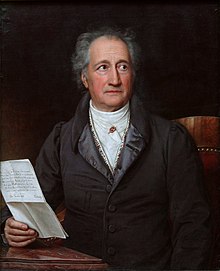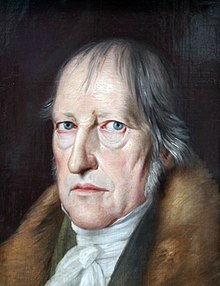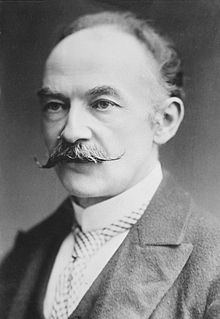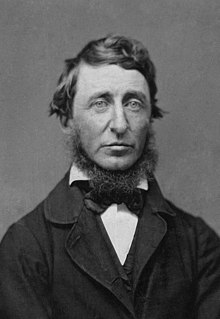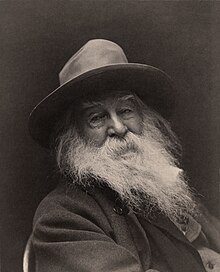
Pantheists
Pantheism is the philosophical and religious belief that reality, the universe, and nature are identical to divinity or a supreme entity. The physical universe is thus understood as an immanent deity, still expanding and creating, which has existed since the beginning of time. The term pantheist designates one who holds both that everything constitutes a unity and that this unity is divine, consisting of an all-encompassing, manifested god or goddess. All astronomical objects are thence viewed as parts of a sole deity.
9 episodes
Episodes in this category also belong to the following categories:
Albert Einstein
Melvyn Bragg and guests discuss Einstein's impact on the world of physics after his 'miraculous year' in 1905 and why he went on to become so very famous after World War One.
14 September 2023
Featuring: Richard Staley, Diana Kormos Buchwald, John Heilbron
ScienceMembers of the Royal Netherlands Academy of Arts and SciencesPhilosophy of science20th-century American male writersAmerican male non-fiction writersStateless peopleNaturalised citizens of Austria20th-century American inventors, Members of the United States National Academy of SciencesAmerican humanistsNobel laureates in PhysicsRecipients of Franklin MedalJewish German physicists, Jewish scientistsPhilosophers of mathematicsJewish agnosticsGerman agnosticsGerman Ashkenazi JewsAmerican Ashkenazi Jews, American Zionists, American agnostics, German Zionists20th-century American engineersAcademic staff of ETH ZurichJewish socialistsAnti-nationalistsEuropean democratic socialistsNaturalized citizens of the United StatesPantheistsAlbert EinsteinMembers of the American Philosophical SocietyWinners of the Max Planck MedalJewish emigrants from Nazi Germany to the United StatesPhilosophers of scienceGerman male non-fiction writersGoethe
Melvyn Bragg discusses the great German polymath Johann Wolfgang Goethe - novelist, dramatist, poet, humanist, scientist and philosopher.
6 April 2006
Featuring: Tim Blanning, Sarah Colvin, W. Daniel Wilson
Philosophers of linguisticsGerman philosophers of artRomantic poetsGerman philosophers of scienceGerman political philosophersJohann Wolfgang von Goethe, Sturm und Drang18th-century German civil servants, 18th-century German dramatists and playwrights, 18th-century German historians, 18th-century German novelists, 18th-century German poets, 18th-century travel writers, 19th-century German civil servants, 19th-century German diplomats, 19th-century German dramatists and playwrights, 19th-century German poets, German bibliophiles, German diplomats, German male novelists, People from Weimar, Scientists from Weimar, Writers from Frankfurt, Writers from WeimarLiteracy and society theoristsPhilosophers of social science19th-century German philosophersTheorists on Western civilizationGerman travel writersPhilosophers of literaturePhilosophers of sexualityEpic poets19th-century German novelistsPhilosophy writersLeipzig University alumni18th-century German male writersEpigrammatists18th-century German philosophers, 18th-century essayists19th-century travel writers19th-century German male writersUniversity of Strasbourg alumniGerman philosophers of languageMembers of the Göttingen Academy of Sciences and HumanitiesLiterary theoristsMembers of the Bavarian Academy of SciencesFabulistsGerman untitled nobilityGerman philosophers of culture19th-century German essayistsGerman male essayists18th-century German educators, 18th-century historians, 19th-century German educators, 19th-century historiansGerman autobiographersGerman ethicists, German philosophers of educationNatural philosophersGerman male dramatists and playwrights, German male poetsPantheistsFreethought writersEnlightenment philosophersGerman librariansWriters about activism and social changeColor scientistsGerman Freemasons19th-century German historians19th-century German non-fiction writersGerman philosophers of historyGerman male non-fiction writersGoethe and the Science of the Enlightenment
Melvyn Bragg assesses the scientific legacy of the 18th century German poet and thinker Goethe, who gave us the term morphology and is sometimes even credited with inventing biology itself.
10 February 2000
Featuring: Nicholas Boyle, Simon Schaffer
SciencePhilosophers of linguisticsGerman philosophers of artRomantic poetsGerman philosophers of scienceGerman political philosophersJohann Wolfgang von Goethe, Sturm und Drang18th-century German civil servants, 18th-century German dramatists and playwrights, 18th-century German historians, 18th-century German novelists, 18th-century German poets, 18th-century travel writers, 19th-century German civil servants, 19th-century German diplomats, 19th-century German dramatists and playwrights, 19th-century German poets, German bibliophiles, German diplomats, German male novelists, People from Weimar, Scientists from Weimar, Writers from Frankfurt, Writers from WeimarLiteracy and society theoristsPhilosophers of social science19th-century German philosophersTheorists on Western civilizationGerman travel writersPhilosophers of literaturePhilosophers of sexualityEpic poets19th-century German novelistsPhilosophy writersLeipzig University alumni18th-century German male writersEpigrammatists18th-century German philosophers, 18th-century essayists19th-century travel writers19th-century German male writersUniversity of Strasbourg alumniGerman philosophers of languageMembers of the Göttingen Academy of Sciences and HumanitiesLiterary theoristsMembers of the Bavarian Academy of SciencesFabulistsGerman untitled nobilityGerman philosophers of culture19th-century German essayistsGerman male essayists18th-century German educators, 18th-century historians, 19th-century German educators, 19th-century historiansGerman autobiographersGerman ethicists, German philosophers of educationNatural philosophersGerman male dramatists and playwrights, German male poetsPantheistsFreethought writersEnlightenment philosophersGerman librariansWriters about activism and social changeColor scientistsGerman Freemasons19th-century German historians19th-century German non-fiction writersGerman philosophers of historyGerman male non-fiction writersHegel's Philosophy of History
Melvyn Bragg and guests discuss Hegel's ideas on history as the progress of the consciousness of freedom, and whether we enjoy more freedom now than those in past centuries.
26 May 2022
Featuring: Sally Sedgwick, Robert Stern, Stephen Houlgate
PhilosophyGerman philosophers of artGerman political philosophersUniversity of Tübingen alumniGerman LutheransTheoretical historians19th-century German philosophers19th-century mysticsGerman idealistsPhilosophers of law18th-century German writersDeaths from choleraPhilosophy writers18th-century German male writersGerman philosophers of mind, German philosophers of religionWriters about religion and scienceAcademic staff of the Humboldt University of Berlin18th-century German philosophers, 18th-century essayists19th-century German male writersGerman philosophers of language19th-century German essayistsBurials at the Dorotheenstadt CemeteryGerman male essayists18th-century German educators, 18th-century historians, 19th-century German educators, 19th-century historiansMetaphysiciansHeidelberg University alumniPantheistsEnlightenment philosophersGerman philosophers of historyGerman male non-fiction writersJung
Melvyn Bragg discusses the mind and theories of the psychiatrist Carl Jung who wrote about the concepts of 'introverted' and 'extroverted', and the significance of the collective history of Mankind.
2 December 2004
Featuring: Brett Kahr, Ronald Hayman, Andrew Samuels
Spinoza
Melvyn Bragg discusses the philosopher Spinoza whose profound and complex ideas about God had him celebrated as an atheist in the 18th century.
3 May 2007
Featuring: Jonathan Rée, Sarah Hutton, John Cottingham
PhilosophyEpistemologistsMetaphilosophersDeterministsAge of EnlightenmentSocial philosophersPhilosophy writersRationalistsPhilosophers of culturePhilosophers of education17th-century writers in LatinCritics of the Catholic ChurchPeople of the Age of EnlightenmentCritics of JudaismOntologistsPhilosophers of mindMetaphysiciansJewish philosophersJewish translators of the BiblePhilosophers of religionPantheistsEnlightenment philosophersBaruch SpinozaPhilosophers of sciencePhilosophers of historyThomas Hardy's Poetry
Melvyn Bragg and guests discuss Hardy's poems, which he prized far above the novels which made him famous and rich, and his ambition to be ranked alongside Shelley and Byron.
13 January 2022
Featuring: Mark Ford, Jane Thomas, Tim Armstrong
CultureMembers of the Order of MeritBritish male poetsPantheistsEnglish male novelists19th-century English poets19th-century British short story writersBurials at Westminster Abbey20th-century English male writersFellows of the Royal Society of LiteratureVictorian novelistsAlumni of King's College London19th-century English novelistsEnglish male short story writersVictorian poetsEnglish short story writersThoreau and the American Idyll
Melvyn Bragg and guests discuss the American 19th century writer and philosopher, Henry David Thoreau
15 January 2009
Featuring: Kathleen Burk, Tim Morris, Stephen Fender
Philosophy19th-century American philosophersAmerican male essayists, American male poetsAmerican philosophers of mind, American philosophers of scienceAmerican spiritual writers19th-century American essayistsAmerican male non-fiction writersUnderground Railroad peopleCritics of work and the work ethicAmerican political philosophersAmerican lecturersAmerican philosophers of cultureHall of Fame for Great Americans inducteesAnti-consumeristsPhilosophers of lovePhilosophers from Massachusetts19th-century deaths from tuberculosis19th-century American poetsPantheists19th-century American non-fiction writersAnarchist writersPhilosophers of historySimple living advocatesWalt Whitman
Melvyn Bragg and guests discuss the innovative 19th-century poet, who broke away from European literary traditions to become a key figure in the development of American culture.
27 April 2023
Featuring: Sarah Churchwell, Peter Riley, Mark Ford
Culture19th-century pseudonymous writersWar writersAmerican people of English descent19th-century American poetsAmerican male journalistsPantheistsAmerican nationalists, American religious skepticsAmerican humanistsHall of Fame for Great Americans inducteesAmerican male novelistsAmerican spiritual writersAmerican male essayists, American male poets19th-century American essayistsAmerican people of Dutch descent19th-century American male writers19th-century American novelists, Novelists from New York (state)19th-century mysticsAmerican LGBTQ poets

